- Home
- Tanya Anne Crosby
MacKinnons' Hope: A Highland Christmas Carol Page 4
MacKinnons' Hope: A Highland Christmas Carol Read online
Page 4
Chapter 2
It was the eve before the winter solstice, the time of the longest night and the shortest day, when the days descended into darkness and the nights grew cold and long.
Tonight’s bonfire, like the night before, was a tribute to Cailleach Bhuer, the blue-faced mother of winter, who was reborn every All Hallow’s Eve to herald in the winter snows. ’Twas said she was the one who froze the ground with every tap of her ash-wood staff, but she was also the one who guarded the realms of men, protecting them from the winter winds. They honored her in hopes that she would continue to stave away the winter snows until the reconstruction was complete. The huts now had foundations, but they still had a ways to go.
Iain inspected the pit, making certain it was constructed to his specifications. It was a very good pit, he decided, rimmed by hefty boulders. The surrounding grass was already mostly charred. Even so, all debris within a stone’s throw had been removed, so as to lessen any further risk of fire. In spite of recent events, his kinsmen would take comfort in the night’s fire, for even in the darkest heart of winter, it was a keen reminder that, from the darkest womb of night, the light again would be reborn.
Even with a rising chill in the air, and a shortage of cloaks and blankets, there were hugs aplenty, followed by smiles and laughter. It was a heartfelt reunion, despite that the cause for the gathering was hardly a cause for celebration.
With so many folks already in attendance, Iain had considered sending word to the MacLeans and the Montgomeries, asking them to join, but it was hardly appropriate to invite a man to sup and then ask him to bring his own victuals. Fortunately, however, the sentiment was moot, because Gavin Mac Brodie slipped away to raid his pantry—yet again—and to retrieve his brothers.
Until this evening the two absent Brodies had been otherwise occupied, Leith with the labor and birth of his sixth bairn—aye sixth—and Colin with the mending of their storehouse roof. After a previous raid, Colin had discovered a leak in the ceiling that managed to soak and rot a few too many bags of grain. Once the job was complete, he’d sent his wife to rally his sister’s clan and together the Brodies and Montgomeries arrived with a number of arses overladen with supplies.
For clansmen who’d once lived amidst bitter feuding, the neighbors’ unflagging generosity brought a bit of moisture to his eyes. As it was, his voice was thick with emotion as he greeted all his guests with eager claps on the back and fierce embraces. Once hellos were said, they put a hog in the pit and set a table replete with foodstuffs that would put a king’s feast to shame. Then whilst they waited for the hog to cook, the members of all four clans congregated before a raging bonfire.
Iain watched his guests with a genuine affection in his heart. The last time they’d had so many people all together in one place, they were gathered together to raise Dunloppe from the ground—a gift to Broc Ceannfhionn from David of Scotia, in return for his fealty.
Auld Angus, with one black eye delivered by Catrìona’s knee, played his reed—a doleful sound. But the children scurried to and fro, laughter quick to touch their lips.
The sound of a few lone hammers rang in the distance, the tinny sound a strange accompaniment to Angus’ song.
For the fourth or perhaps fifth time—who was counting?—Iain embraced his friend. “Ye canna fathom how pleased I am to see you.”
Broc hugged him back, unashamed to linger in the embrace. “Och, mon, di’ ye believe we would leave ye to fend for yourselves? Nay, my friend, whatever is mine is yours to have,” he said.
Iain feared his eyes would remain hopelessly moist. He swallowed hard as he extracted himself from the massive hug with which Broc had nearly crippled him.
“God’s teeth, ’tis a wonder ye’ve anything left to give with so many bairns to feed,” Iain joked. “Ye’ve been a busy mon since ye left!”
Broc crossed his burly arms and gave him a wink. “Ye must be envious?” he suggested.
“Nay, but ye’re a randy bastard, to be sure.”
Broc chuckled, his gaze drawn toward Aidan dún Scoti, who was now standing on the opposite side of the pit, speaking at length with his bonny sister, Cat. “I see ye’ve lured his majesty from the vale? However di’ ye manage?”
“He came of his own accord, Broc. Ye ken I would never ask.”
“Aye, well, he has yet to meet my gaze even once since I’ve arrived—despite that his sister Lael is pleased enough with her husband. I dinna believe that oaf will ever forgive me for putting Lael in harm’s way.”
Iain crossed his arms. “He will in time. Aidan is a good mon, Broc. In truth, were it my own sister ye put to risk, even with our many years together, I may have had some trouble forgiving ye as well.”
Inadvertently, Broc was the reason Lael dún Scoti and Jaime Steorling were now wed. Had he never asked her to join his fight for Keppenach, his birthplace, they would never have found themselves at King David’s mercy. Broc nodded, if reluctantly.
“Look at it this way. He’s not yet strangled ye, so I’d say ’tis progress, and ye’re both warming your soft arses ’round the same bonny fire.”
Broc grumbled low. “I dinna ken how much progress that is. Ye’ve gone and built the biggest damned fire I ever did see. The man could be warming his arse all night long and never see me once.”
Iain barked with laughter as Page came wending her way through the crowd, swiping her long, lean hands on her stained and dirty skirts. “Broc Ceannfhionn!” she exclaimed. “Welcome! Welcome! ’Tis glad I am tae see ye.”
Broc threw open his arms at once. “Och, lass, is that a bit of a brogue I hear? At long last?”
Page laughed. “After all this time I suppose it is.” Her cheeks filled with rosy color as she reached out to give Broc a long-overdue hug.
Broc drew his former lady into a gentle embrace.
“You’re so verra welcome,” Page said again. “although I do hope ye’ve come without your fleas,” she teased.
“Och, my lady, will ye ne’er let me live that down?”
“Never!” Page swore, laughing. “But I promise never to tell your children.”
All three laughed at the memory of Page’s first task upon arriving at Chreagach Mhor. Having found Broc and his company full of biting fleas, Page set out to bathe them all, including Broc and his dog—God rest the poor beast.
“Where is Elizabet?” Page asked.
“Dressing the wee ones a little warmer,” Broc said. “She’ll be down soon. She’s eager to see ye.”
“As I am to see her,” Page allowed. “’Tis been far too long.” She peered around, searching the crowd. “There are so many here! I have yet to greet them at all.”
Iain smiled down at his wife, reaching out to flip a lock of hair behind her back. “There are far worse complaints, my dear.”
“Indeed, there are,” Page agreed, looking back at Broc. “I am certain the children have grown so much I shall hardly know them!”
“Like weeds,” Broc confessed. “Although none so much as that knuckle lad o’er there.” His gaze shifted toward the gangly group of youths laughing by the fire—all save one.
Malcom MacKinnon stood near Constance and Aidan’s son Kellen, reacquainting themselves. But Malcom, off to one side, seemed to be brooding, lost amidst his own thoughts, while Constance made goo-goo eyes at their newly arrived young guest.
With hair the color of his mother’s, and eyes as dark as freshly tilled soil, Kellen dún Scoti was on the verge of becoming his own man.
All three fell silent, watching the pack of youths, until Iain sucked in a weary sigh. “I dinna ken how to reach him anymore,” he said.
Page moved away from Broc and into her husband’s embrace. “We’ll find a way,” she said softly.
“He looks well enough,” Broc suggested. “What bedevils him?”
The MacKinnon’s eyes never left his son. Worry lines etched his brow. Next in line to lead the MacKinnon clan, Malcom was full of ire and full of fear.
“An old wound, let us say.”
* * *
As the bonfire dwindled into the wee hours, the sound of hammering persisted. Malcom MacKinnon stood apart from his friends, staring into the dying flames.
How many bonfires had they built in his lifetime? Two thousand? Mayhap three?
Not once had they ever failed to contain the flames. One year it had been so dry that crops withered on the vines, yet fire had never once threatened their homes. Not once had it decimated stores or crops. Not once had his kinsmen ever been so careless. In all his seventeen years this was the first such wildfire he could recall.
While everyone else laughed and celebrated the company of friends, Malcom couldn’t help but feel alone. At least it seemed he was alone in his trepidation.
Who would benefit from such a heinous act?
Most of his life he’d had an affinity for sensing danger—mayhap, in truth because of what had happened to him as a boy. (His own uncle abducted him from his bed and then bartered him to the English.) But far more likely to be, Glenna, the midwife, always said Malcom, like his grandmother, had a knowing. He felt it now deep in his bones…
His gaze skidded from one face to another, most of them familiar, trying to determine why he felt so ill at ease.
There was Catrìona Brodie, who seemed to adore her husband more than she did herself, doting on him as he did her. It was embarrassing to watch. Even now the two were huddled together, feeding each other morsels of food.
And then there was Piers de Montgomerie, who was getting fat and happy—at least no longer quite so fit, with arms that seemed wider than his thighs. Nay. But he seemed pleased enough with his lot in life, chasing after a passel of kids. For Malcom’s part, he saw those children as simply more to lose—more bait to lure the wicked into perfidy.
And here was Broc … who now had his own demesne. If there was one man Malcom doubted would ever betray his Da, it was Broc Ceannfhionn. The man had generously brought along with him half his grain, and every last piece of unused cloth he’d had in his possession—along with his dutiful wife, who was already promising to sew everyone new clothes.
Old friends and new were congregated about the bonfire, sharing the antics of their children, comparing details about the past year’s crops and discussing at length the unfortunate circumstances of a lass left to her own devices. This last discourse was no doubt about Malcom’s cousin Constance, who by the by, appeared to be smitten with the dún Scoti’s black-haired son.
Of course, once again, Malcom’s grandfather was nowhere to be found. The rumor was that Old Man Maclean was on his deathbed now, and it must be true, because Leith Mac Brodie had arrived without his aunt Alison—who must surely be keeping vigil over her father’s bed. Malcom didn’t like to think of himself in Alison’s position—keeping vigil over a dying father, but that day must surely come.
For his part, he did not wish to see the day arrive, but he was bored beyond being, without a purpose in his life, save to look for danger in the shadows.
He thought about his mother’s father—a man who rarely opened his hearth and home to strangers. Did he truly wish to end like that?
The answer was nay, but he could not ignore this sense of knowing he’d been gifted with. Mayhap his kinsmen all simply thought him a boy who cried wolf, but more times than not he’d had good cause to be alarmed.
There was the time he’d told his Da he’d spied the Weeper wailing by the burn, washing out a bloodstained tunic. According to folks, she only appeared when someone was about to die. And later that day, Kermichil choked on a wishbone and died.
And then there was the time he’d spied the Sassenach hiding in their barn, up in the loft. But Malcom had been young then—no more than eight—and ran away to tell his Da. Unfortunately, they never found the man, but mayhap his watchfulness had prevented an attack that day. Couldn’t it be, despite his being young, he’d scared the man away?
The sky was dark this eve, with a gloomy new moon, but the night seemed perfectly clear—without a hint of snow. Angus’ reed had long since quieted. And little by little, the laughter subsided as kinsmen took to their blankets beneath the stars.
The darkness was nearly impenetrable now, but Malcom could still hear a few stubborn kinsmen rapping at their nails.
He settled against a fat log outside the glow of the fire, where none could spy him too clearly—all the better to keep his vigil by—and cast his cousin a worried glance.
For her part, Constance didn’t even realize he was there, watching over her—making certain she didn’t get herself into trouble. Thankfully, his lovely young cousin was no longer quite so inclined to be shed her clothes. Still, Malcom remained close, watching as she flirted with Kellen dún Scoti.
Barely two years his junior, Kellen was nevertheless a stranger to their clan. It mattered not who his Da was. Everyone was suspect to Malcom’s way of thought.
“Tell me more about Dubhtolargg,” he heard Constance whisper, and Kellen scooted closer.
Malcom frowned as the dún Scoti lad waved his hand along an imaginary landscape, embellishing for the benefit of a girl. “Our vale is surrounded by mountains, and ringed with beautiful rowan trees—almost as beautiful as your hair.”
Malcom rolled his eyes and tried not to laugh.
“My father’s house sits upon a loch.”
“In the water?” Constance asked, aghast.
“On stilts. ’Tis called a crannóg,” the lad enlightened.
“D’ ye never get wet? What about when it storms? Does the water never rise into your beds?”
“Never,” he said. “This is the way my ancestors have lived for many, many years.”
“What a sight! I would dearly love to see it someday.”
“Perhaps you will?” Kellen rested a hand upon her knee and Malcom cleared his throat, very loudly. Kellen started, spotting him at once, and withdrew. Constance never bothered peering about, and Malcom crossed his arms.
“What about your kinsmen?” she asked, completely enthralled. “Do they all sleep beneath the same roof? How very large your crannóg must be!”
Once again, Malcom rolled his eyes, quite sure Kellen would take it as a point of male pride—yet so long as it was only his crannóg they were discussing, Malcom couldn’t be bothered to care.
“Nay,” Kellen said, leaning back on one arm. “We have a village, same as ye.”
Constance shivered, rubbing her arms.
“Are ye cauld, lass?”
“Just a wee bit,” his cousin said softly, batting her lovely, long lashes. Och, but she had no idea how dangerous those sultry looks could be…
Kellen cast a wary glance in Malcom’s direction and Malcom smiled thinly. As long as he stayed near, they were bound to behave themselves, so he settled in for the duration and laid his head back to stare up into the stars, giving his eyes a bit of rest and letting his ears do the listening.
But he had no notion how tired he was. He’d only meant to close his eyes for a moment. Without warning he fell fast asleep…
Chapter 3
December 22, 1135
Dawn broke over a smoky landscape.
The bonfire that had burned so bright the evening before was now reduced to ash, leaving naught but a bed of burning coals.
Malcom awoke with a start.
Quick on the heels of the realization that he’d fallen asleep was the realization that he was also the first to wake. The first pleased him not at all. The second filled him with relief, because everything and everybody—as far as he could see—was still in one piece.
The ground was covered with sleeping forms. Feet intertwined, arms and legs askew, heads over and beneath leaf-covered tartans. It was a veritable sea of sleeping folk, all wearing cherry-red noses from the cold and dirty faces from sleeping on half burnt grass.
He didn’t spot Constance, and hoped she would have gone to her bed. Good girl, he thought, and said a little prayer that it must be so.
Rubbing a
t his eyes, he stumbled to his feet, realizing that the haze of the morning was more mist than smoke. Even now, the rising sun was burning it away, brightening the landscape. Yawning, he stretched, intending to go searching for Constance, and froze where he stood.
It wasn’t possible.
He rubbed his eyes and looked again.
Nay, it wasn’t possible.
But it was.
They were surrounded—not by half finished homes—but by fully formed cottages, all with roofs complete with thatch. For an instant, he wondered if some faerie had lifted him up and carried him to another place…
Mute with shock, Malcom stepped over Angus, who lay sprawled at his feet, one hand still wrapped about the neck of his uisge flask. Mouth agape, he moved soundlessly toward the nearest hut, quite certain he was dreaming and that the cottage would vanish any second. “’Tis but a dream,” he said to himself.
“What’s that?” Angus mumbled, half asleep. Rather than bring his uisge flask to his mouth, he brought his mouth to the flask, struggling to drink with eyes half closed.
Malcom didn’t answer. He put one foot in front of the other, stepping over sleeping kinsmen, until he reached the hut and splayed his hands against the new wood.
It was solid, but there was no way a few stubborn men with a handful of hammers could have so quickly completed what they’d begun just a few day ago. Last night, after the sun went down, most of these houses were still not complete.
“What the devil?” he heard Angus ask.
And then another kinsman asked, “What’s this I see?”
“The houses—look, they’ve all built themselves!”
“Look! Look!”
“Tis a gift from the Cailleach!”
“Impossible!” he heard another man exclaim, but Malcom stood transfixed, examining the newly erected hut.
Aye, it was impossible.
Would they have him believe some old woman had simply waved her staff and thereby erected all these huts?

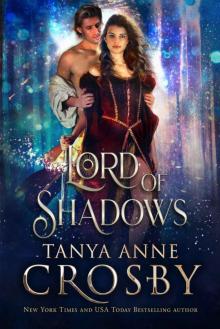 Lord of Shadows (Daughters of Avalon Book 5)
Lord of Shadows (Daughters of Avalon Book 5)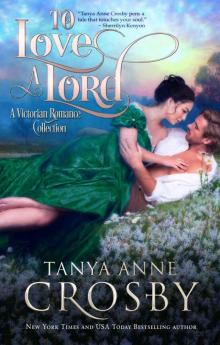 To Love a Lord: A Victorian Romance Collection
To Love a Lord: A Victorian Romance Collection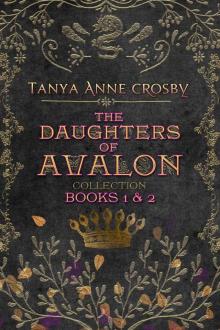 The Daughters of Avalon Collection: Books 1 & 2
The Daughters of Avalon Collection: Books 1 & 2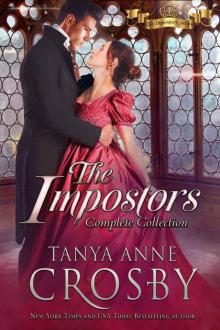 The Impostors: Complete Collection
The Impostors: Complete Collection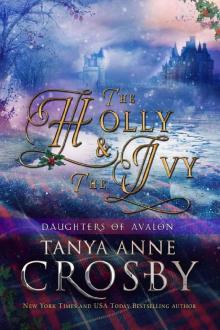 The Holly & the Ivy (Daughters of Avalon Book 2)
The Holly & the Ivy (Daughters of Avalon Book 2)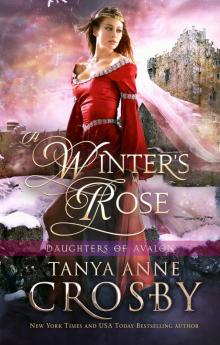 A Winter’s Rose
A Winter’s Rose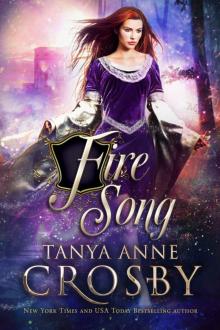 Fire Song (Daughters of Avalon Book 4)
Fire Song (Daughters of Avalon Book 4)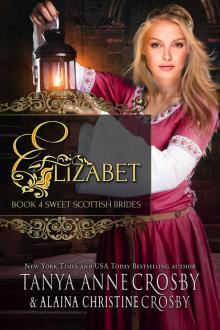 Elizabet
Elizabet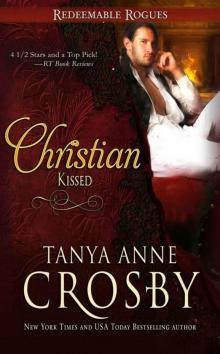 Kissed; Christian
Kissed; Christian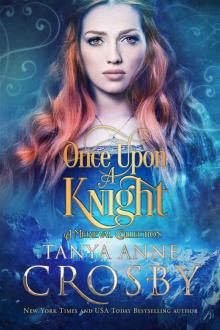 Once Upon a Knight
Once Upon a Knight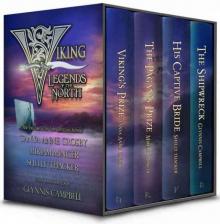 Viking: Legends of the North: A Limited Edition Boxed Set
Viking: Legends of the North: A Limited Edition Boxed Set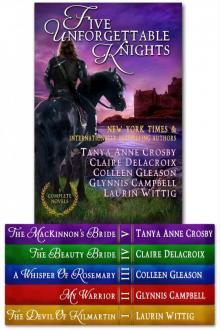 Five Unforgettable Knights (5 Medieval Romance Novels)
Five Unforgettable Knights (5 Medieval Romance Novels)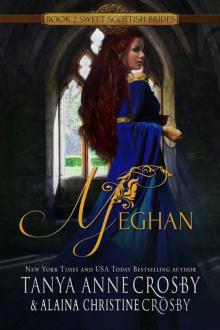 Meghan: A Sweet Scottish Medieval Romance
Meghan: A Sweet Scottish Medieval Romance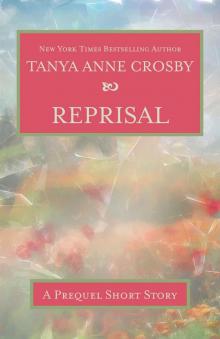 Reprisal: A Prequel Short Story to REDEMPTION SONG
Reprisal: A Prequel Short Story to REDEMPTION SONG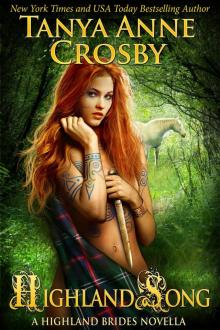 Highland Song
Highland Song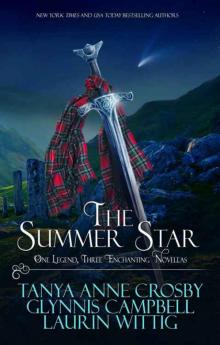 The Summer Star: One Legend, Three Enchanting Novellas (Legends of Scotland Book 2)
The Summer Star: One Legend, Three Enchanting Novellas (Legends of Scotland Book 2) Once Upon a Kiss
Once Upon a Kiss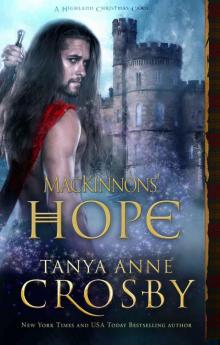 MacKinnons' Hope: A Highland Christmas Carol
MacKinnons' Hope: A Highland Christmas Carol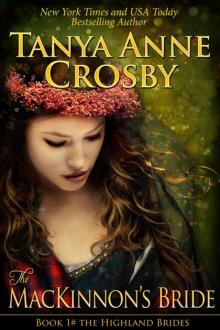 The MacKinnon's Bride
The MacKinnon's Bride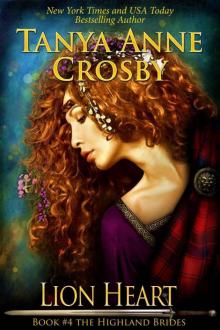 Highland Brides 04 - Lion Heart
Highland Brides 04 - Lion Heart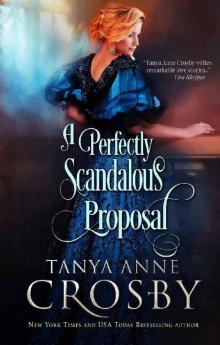 A Perfectly Scandalous Proposal (Redeemable Rogues Book 6)
A Perfectly Scandalous Proposal (Redeemable Rogues Book 6) Reprisal
Reprisal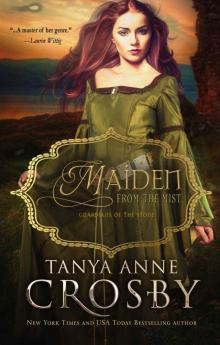 Maiden from the Mist (Guardians of the Stone Book 4)
Maiden from the Mist (Guardians of the Stone Book 4)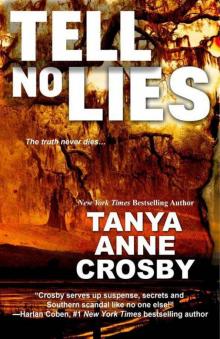 Tell No Lies
Tell No Lies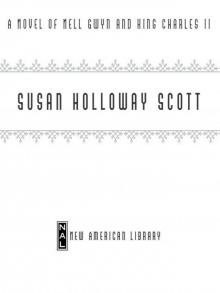 The King's Favorite
The King's Favorite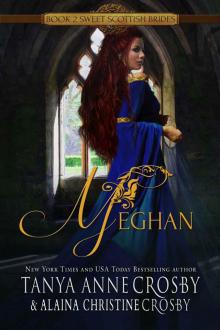 Meghan: A Sweet Scottish Medieval Romance (Sweet Scottish Brides Book 2)
Meghan: A Sweet Scottish Medieval Romance (Sweet Scottish Brides Book 2)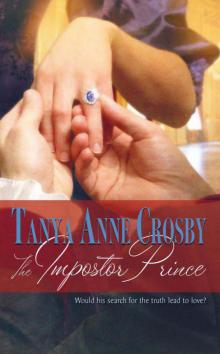 The Impostor Prince
The Impostor Prince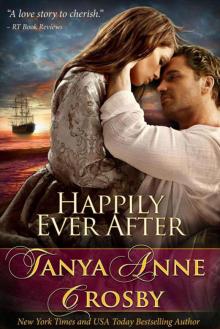 Happily Ever After
Happily Ever After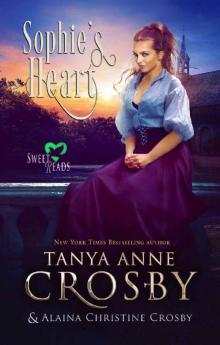 Sophie's Heart: Sweet Historical Romances
Sophie's Heart: Sweet Historical Romances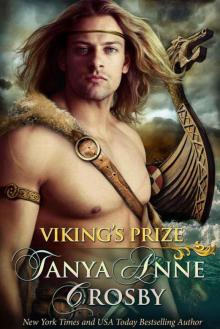 Viking's Prize
Viking's Prize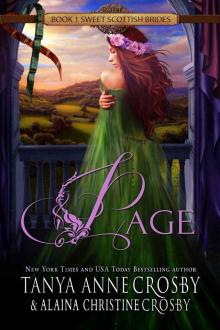 Page
Page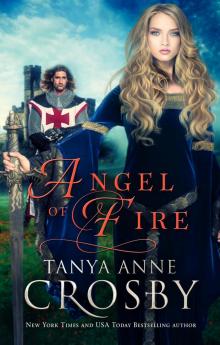 Angel of Fire
Angel of Fire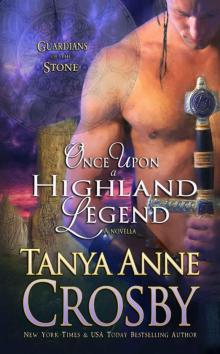 Once Upon A Highland Legend
Once Upon A Highland Legend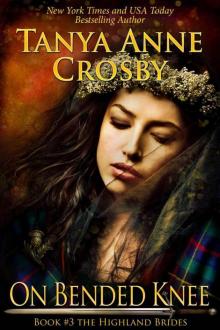 Highland Brides 03 - On Bended Knee
Highland Brides 03 - On Bended Knee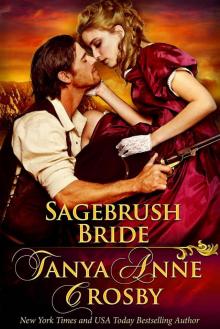 Sagebrush Bride
Sagebrush Bride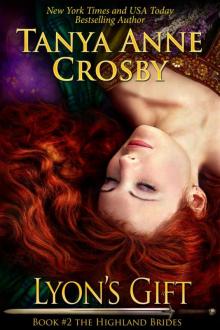 Lyon's Gift
Lyon's Gift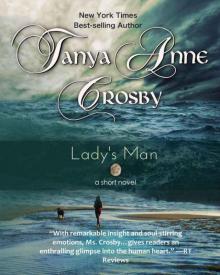 Lady's Man
Lady's Man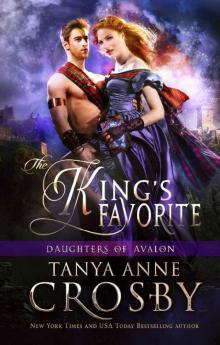 The King's Favorite (Daughters of Avalon Book 1)
The King's Favorite (Daughters of Avalon Book 1)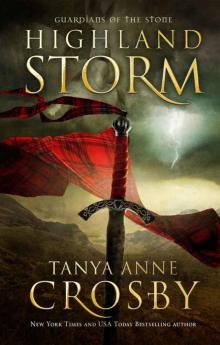 Highland Storm
Highland Storm Redemption Song
Redemption Song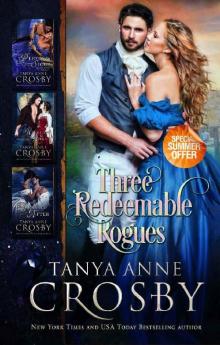 Three Redeemable Rogues
Three Redeemable Rogues